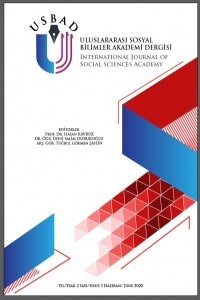
Uluslararası Sosyal Bilimler Akademi Dergisi
Yazarlar: ["Gökhan ABANOZ"]
Konular:-
DOI:10.47994/usbad.1248216
Anahtar Kelimeler:Antik çağ,Skolastik Dönem,Modernizm,Belirlenimcilik,Değişim,Süreklillik
Özet: The subject of change and continuity has continued to exist as a dualist problem in the debates specific to nature and human society throughout the history of thought. These phenomena, which have been at the center of philosophical discussions especially since the Pre-Socratic period philosophers Parmedines and Heraclitus, finally gained a scientific identity as the most general existence form of human phenomena besides natural events with Karl Marx in the 19th century. The aim of this study is to clarify whether the phenomena of determinism, change and continuity contain a continuity in the context of political, social and economic reflections of Western civilization in the Ancient, Scholastic and modern ages. In the study, the similarities of the feudal system, which determined the political, economic and social order in the Scholastic period, with the deterministic structure of classism in the Ancient Greek sites are revealed, while the bureaucracy, institutionalism and professional division of labor established in order to reorganize social life in the modernity process that emerged as a result of the French Revolution and Industrial Revolution. It has been tried to explain the causal and deterministic structure of the roles in it. In the final analysis, it has been concluded that the determinist and causal thought, which manifested itself in the vertical social hierarchical structure in the West in the Ancient and Scholastic periods, continues in different practices in the modern age, this time in the form of different historical phenomena on a horizontal plane.